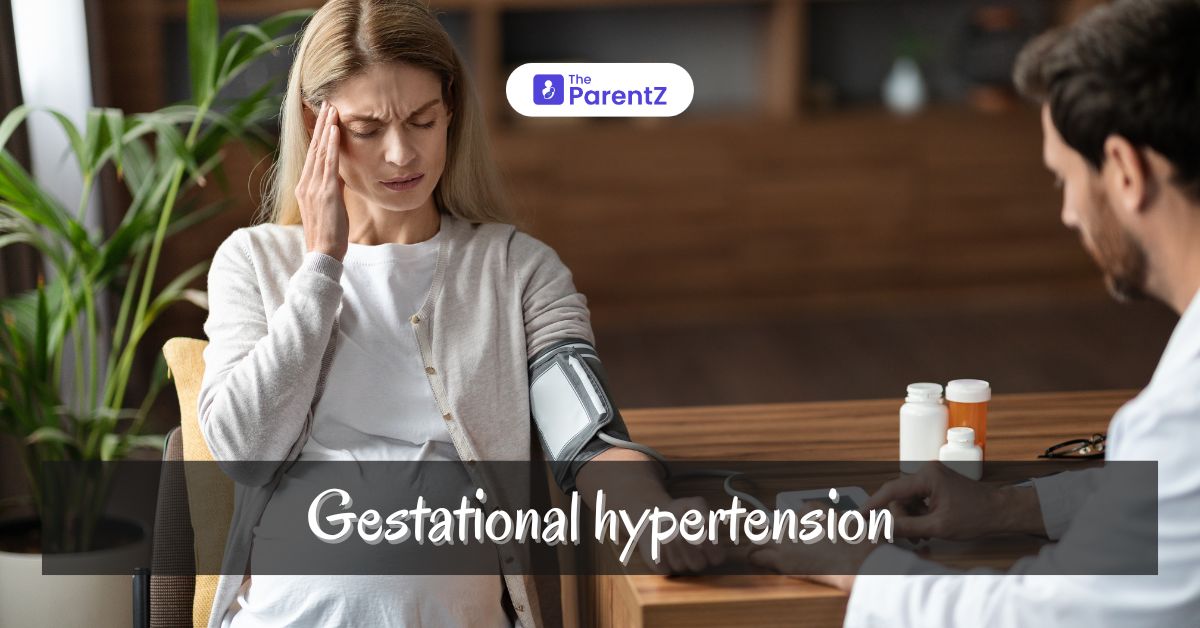What is gestational hypertension ?
Gestational hypertension or pregnancy induced hypertension is high blood pressure caused after 20 weeks of pregnancy which resolves shortly after childbirth. High blood pressure may not cause any noticeable symptoms so it is essential that you regularly visit your health care provider for all your antenatal check ups where your health status would be monitored and your blood pressure would be taken regularly.
Who is at a higher risk for hypertension in pregnancy?
Some factors may place you at a higher risk for developing hypertension during pregnancy. You are more likely to develop hypertension if
- You are either under 20 years of age or over 40 years of age.
- You had hypertension in past pregnancies.
- You have a family history of gestational hypertension.
- You have diabetes.
- You have a kidney disease .
- You have twins or triplets.
- You are of the darker race.
What are the signs and symptoms of hypertension in pregnancy?
Hypertension are generally not noticed by a person. Your health care provider will tell you that you have hypertension only after measuring your blood pressure on at least two different occasions. The general signs and symptoms which may be present if you are hypertensive during pregnancy include:
- There may be edema or swelling all over the body including the legs. The swelling starts in the legs and is most noticeable over here.
- There can be changes in vision such as blurring of vision, seeing doubles.
- There can be frequent and intense headaches.
- Nausea and vomiting maybe present.
- A sudden weight gain may be noticed.
- You may have a dull pain in the abdomen.
What problems does hypertension in pregnancy cause?
Not everybody who has hypertension during pregnancy will develop complications. Hypertension can be adequately managed if treated properly. But sometimes, complications may develop such as:
- You may have a seizure.
- There is a higher risk for stroke.
- You may develop kidney issues.
- You may develop liver issues.
- You may have blood clotting problems.
When should I consult a doctor?
If you have been diagnosed with gestational hypertension, there are few signs you should know which are the danger sign. If you observe any of these, consult your health care provider immediately. These include:
- A sudden loss of vision, blurred vision or seeing doubles
- Sudden and intense headache which do not go away
- Peeing less than usual
How should I take care at home?
You should follow certain steps which will help you manage your hypertension effectively. These can also ensure a trouble free delivery. These simple steps to be followed are:
- Consult your doctor or your health care provider and take all the medications as prescribed.
- Do not miss any appointments with your health care provider and ensure regular monitoring of your blood pressure.
- You should monitor your blood pressure at home as well and keep a chart.
- Eat a balanced and the healthy diet.
- Do not consume excessive salt.
- Have an early delivery if needed or advised by your health care provider.
You should know that most people who have gestational hypertension go through their pregnancy without complications and deliver a healthy baby. If managed effectively, gestational hypertension is not going to cause any problems for you or your child.








Be the first one to comment on this story.